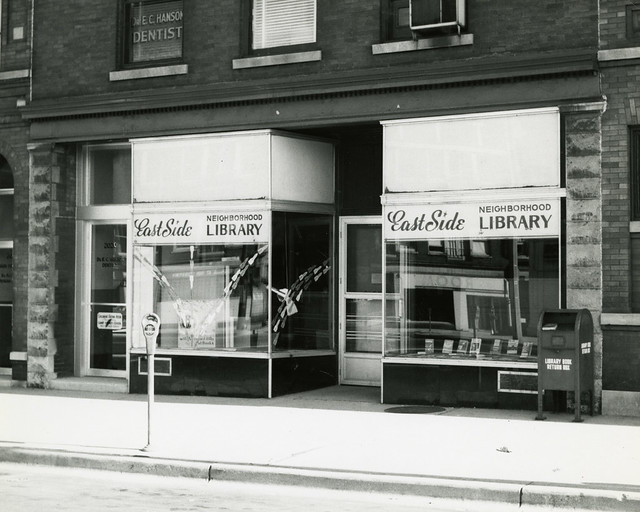Independent booksellers lost a champion this weekend.
I worked for and got to know Avin Domnitz after he joined
forces with David Schwartz to lead Milwaukee’s Harry W Schwartz Bookshops/Dickens
Books in the mid-eighties.
So many booksellers of a certain age- myself included- got
into the business for love of the product, not retailing in general. The business aspects were a necessary evil, and
the less time spent worrying about them the better. Some of us saw it as one of the last
honorable ways to make a living. Some of
us thought it was a way to change the world.
Some of us just didn’t have the wit or talent to do anything else.
But as the competitive environment began to heat up, the necessary skill set to survive was sometimes lacking. Avin was just what we needed. He shared some of those motivations, but he
also had a talent for and enjoyment of negotiation and persuasion honed as a
trial lawyer.
A keen analytical thinker, a strategist, that rare guy who
was always able to keep both forest and trees in sharp focus, Avin was the man
you wanted in the room when dealing with big fish- bookstore chains, major
publishers, internet entities, government, banks, landlords.
When I recall those long ago days, I think we (the Schwartz
side of the family merger) didn’t always appreciate what he brought to the
table. Avin’s thankless job was to keep
watch over today’s sales to make sure we’d have the money to pay yesterday’s
bills. We often didn’t. His close attention to the bottom line, expenses,
and business practices was not always well-received. It wasn't as much fun as shelving an incoming
order of Penguins. But his scrupulosity probably saved the stores more than once.
The Schwartz stores thrived on being bookish places, and
David himself was a consummate reader. But
Avin was also a reader. Avin’s
intellectual gravitas, his passion
for particular books and authors, got less attention than it deserved since he
worked behind the scenes rather than in front of customers. This man had impeccable reading tastes and strong,
thoughtful opinions about literature and history.
Avin and I left the stores around the same time- he to work
for the American Booksellers Association as CEO, me to become a sales rep. Our paths crossed occasionally since then,
and I remember a conversation awhile back about Yale’s Jewish Lives series
after he’d met the editor. “These are such
wonderful books,” he enthused. He may
have retired but his excitement about books was as fresh as our first
conversation about Philip Roth 30 years ago.
When I think about Avin I recall his incredible patience, and
his willingness to give advice in a way that the mathematically challenged could
process. His confidence could sometimes
be a little intimidating, but he showed just enough ordinary human insecurity
and anxiety that the anxiously insecure enjoyed his company.
He had a droll sense of humor, especially about human
foibles. But when people disappointed
him or did stupid things he never seemed to sour on humanity in general- a feat
that’s easier said than done and I suspect had something to do with his deep love of
family and faith.
There are lots of heroes to celebrate as independent
bookselling seems to be miraculously surviving and maybe even thriving, but few
have done as much to chaperone the profession into the 21st century. If American booksellers today are smarter,
more sophisticated in their business practices, more networked, more savvy
about social media, and more confident about the future, they have Avin Domnitz
to thank.


.jpg)